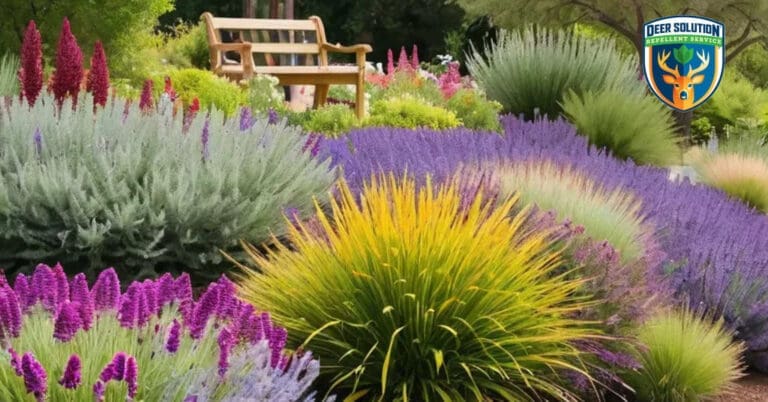When cultivating a vibrant garden, understanding which plants are deer-resistant can save you time and effort. One common question gardeners ask is, do deer eat meadow sages? Meadow sages, known scientifically as Salvia pratensis, are often considered deer-resistant, making them a popular choice for those looking to protect their landscapes from deer damage.
Understanding Deer Dietary Preferences
Deer are known for their varied diet, which can include a wide range of plants, shrubs, and trees. However, their preferences often lean towards tender, nutrient-rich vegetation. Meadow sages, with their robust and aromatic foliage, tend to be less appealing to deer. The strong scent and slightly bitter taste of meadow sages act as natural deterrents, making them a less likely target for hungry deer.
The Benefits of Planting Meadow Sages
Incorporating meadow sages into your garden offers several advantages beyond their deer-resistant properties:
- Low Maintenance: Meadow sages are hardy plants that require minimal care, thriving in various soil types and conditions. They are drought-tolerant and can withstand periods of neglect, making them ideal for busy gardeners.
- Pollinator Friendly: These plants attract beneficial pollinators such as bees and butterflies, promoting a healthy and diverse ecosystem in your garden. The vibrant flowers of meadow sages provide a rich source of nectar, supporting the local pollinator population.
- Extended Bloom Period: Meadow sages bloom from late spring to early fall, providing continuous color and interest in your landscape. Their long-lasting blooms can enhance the aesthetic appeal of your garden for several months.
- Versatility: Meadow sages can be used in various garden settings, including borders, rock gardens, and wildflower meadows. Their adaptability makes them a versatile addition to any garden design.
Eco-Friendly Deer Management Strategies
While planting deer-resistant species like meadow sages can help reduce deer damage, integrating additional eco-friendly strategies can further protect your garden. Here are some tips:
- Variety in Planting: Diversify your garden with a mix of deer-resistant plants. This approach not only enhances the visual appeal but also reduces the likelihood of deer targeting your garden. Consider incorporating plants such as lavender, yarrow, and Russian sage, which are also known for their deer-resistant properties.
- Proper Plant Placement: Position more vulnerable plants closer to your home or in areas with higher human activity, as deer are less likely to venture into such spaces. Additionally, using natural features like dense shrubs or thorny plants can help shield delicate plants from browsing deer.
- Regular Maintenance: Keep your garden well-maintained by removing fallen fruits, trimming overgrown shrubs, and clearing debris, which can attract deer. Regularly inspect your garden for signs of deer activity and take prompt action to address any issues.
- Natural Repellents: Utilize natural deer repellents such as garlic spray, soap shavings, or commercial organic repellents. These can be applied to plants and garden areas to deter deer without harming the environment.
Final Thoughts on Protecting Your Garden
Creating a garden that thrives despite the presence of deer involves more than just planting deer-resistant species. Understanding deer behavior and maintaining an eco-friendly approach to garden care can significantly reduce the risk of damage. By combining smart plant selection, thoughtful garden design, and regular maintenance, you can keep your landscape looking beautiful and resilient year-round.
While addressing deer-related landscape challenges can seem daunting, Deer Solution offers a specialized approach grounded in our eco-friendly ethos and decades of expertise. Exploring sustainable solutions leads us to consider how professional services, like those offered by Deer Solution, provide tailored support for maintaining the health and beauty of your landscape. By integrating a combination of deer-resistant plants, strategic garden design, and professional repellent services, you can create a garden that thrives despite the presence of deer.








